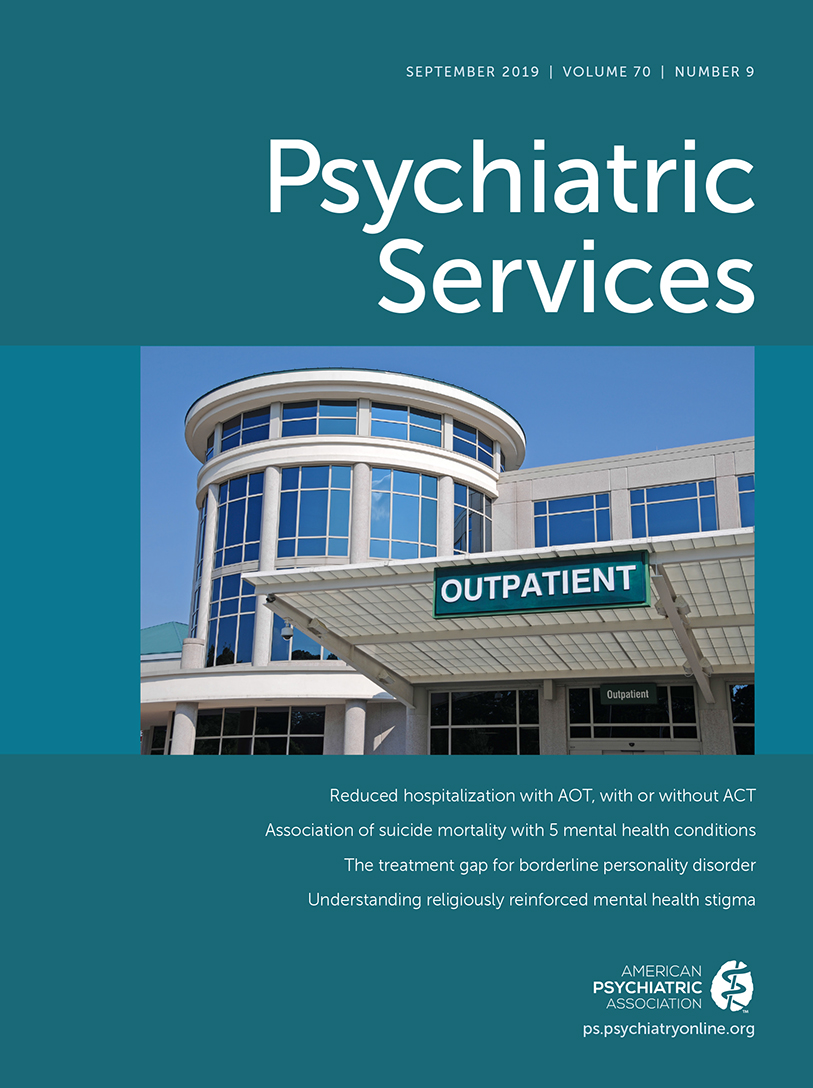Association Between Hospitalization and Delivery of Assisted Outpatient Treatment With and Without Assertive Community Treatment
Abstract
Objective:
This study examined hospitalizations for individuals receiving assisted outpatient treatment (AOT), some of whom also received assertive community treatment (ACT). We examined whether participation in AOT, as well as in AOT paired with ACT services, was associated with reduced hospitalizations.
Methods:
Data were collected for 74 people who were receiving AOT for at least 6 months. Comparisons were made between those receiving AOT with ACT and those receiving AOT without ACT. Changes were examined in number and days of hospitalization before, during, and after AOT on an annualized basis.
Results:
AOT was associated with reduced hospitalizations and hospital days during and after the court order. Participating in AOT without ACT was associated with fewer hospitalizations during and after AOT and fewer days hospitalized after the court order ended.
Conclusions:
Individuals whose needs can be met with less intensive services while under an AOT order may not require ACT.



